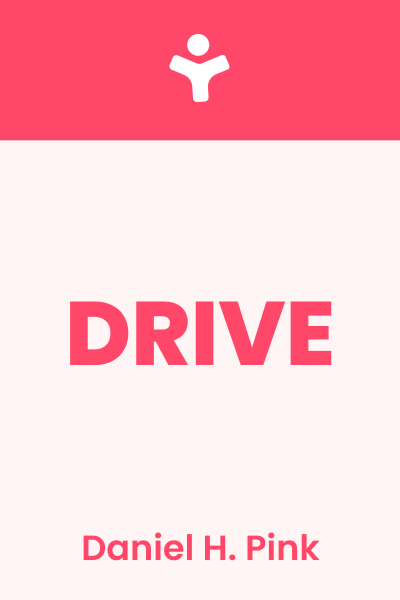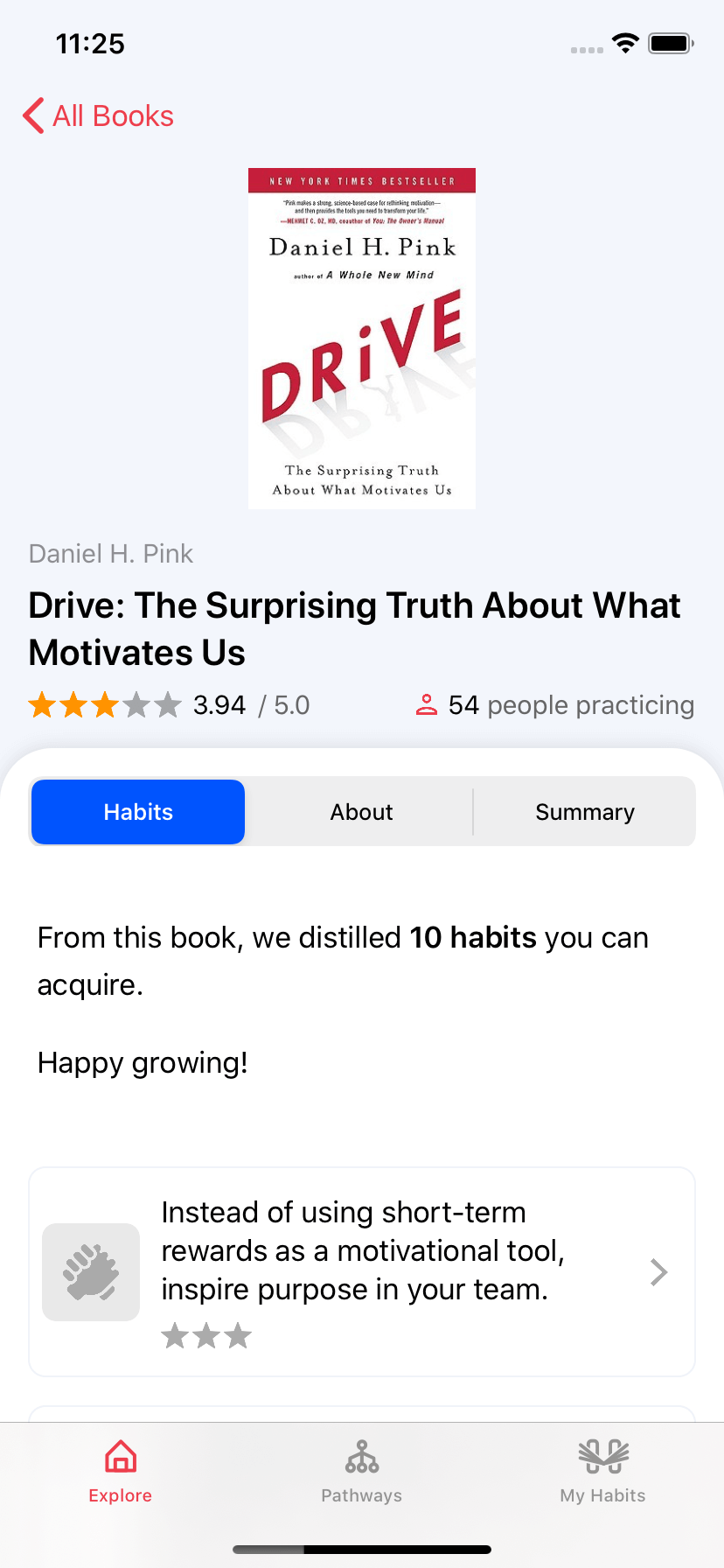
Drive: The Surprising Truth About What Motivates Us
Read in the App
Full actionable summary
In Drive: The Surprising Truth
What You'll Learn
This summary distills the key insights from Drive: The Surprising Truth About What Motivates Us into actionable steps you can apply immediately. Perfect for busy professionals who want to learn and implement quickly.
Read in the App
Get the full actionable summary with our mobile app
Key Insights & Chapters
Part One: A New Operating System
“Much of our societal operating system consists of a set of assumptions about human behaviour.”
Originally, humans were motivated by survival - referred to as Motivation 1.0. Now, it is more than that. We are motivated by rewards, and seek to avoid punishment - referred to as Motivation 2.0. While this sort of motivation does work to an extent, it is incompatible with three major ways of how we, as humans, function:
-
How we organize what we do
-
How we think about what we do
-
How we do what we do
How we organize what we do
Motivation 2.0 means that humans will only do things for profit or gain, or in the hopes of avoiding punishment. However, take non-profit organizations for example, as the way they function directly contradicts this. They favour long-term value and social impact over short-term monetary gain.
How we think about what we do
Motivation 2.0 assumes humans are robotic wealth-maximizers, however, much of human action points to the contrary. For example, many people hold on to bad investments instead of cutting our losses, as we feel more pain in losing money than making back the same amount we had earlier. Another example - people often leave high-paying jobs to pursue something low-paying which gives them a sense of purpose (i.e. a banker quitting his job to become a clarinet player). People are not always motivated by external incentives - more often than not, it is what is intrinsic that drives us.
How we do what we do
Motivation 2.0 assumes that work is inherently unenjoyable, hence the need for external rewards/punishments. However, with the advent of technology, most of the boring, routine jobs have been replaced by softwares and many jobs now require creativity, making them fun! This replaces the need for external incentives; many people work simply because they enjoy their job.
Intrinsic motivation and creativity
Essentially, relying solely on Motivation 2.0 crushes out creativity and good behavior as people will focus on the reward/punishment and take the shortest route to get there. This also fosters short-term thinking, as people don’t think about what’s beyond the reward/punishment. Instead of relying on a method of motivation purely driven by rewards/punishments, methods that encourage intrinsic motivation and creativity lead to better overall outcomes.
Actions to Take
Part Two: The Three Elements
“Management isn’t about walking around and seeing if people are in their offices. It’s about creating conditions for people to do their best work.”
Money is only a threshold motivator - i.e. people are motivated to make enough money to support themselves and their families. Beyond that, they will seek jobs that give them autonomy and allow them self-direction - in fact, they will turn down jobs with higher salaries to stay with one that gives them this freedom!
Autonomy is considered one of the most fundamental parts of human existence. People flourish in situations where they are allowed self-autonomy, and they will achieve mastery of their goals.
Furthermore, people are more satisfied when they are following the right goals. Those motivated by money or power tend to be unsatisfied, as they spend less time on building relationships and end up with less love, attention, and care in their lives. Those who are satisfied with their lives are usually striving towards a goal that gives them a sense of purpose and makes them feel like they’re doing something that matters.
Actions to Take
Part Three: The Type I Toolkit
“Type I’s are made, not born.”
Most of us were led to believe that Motivation 2.0 is the way to go - to be driven by rewards/punishments, and not by our intrinsic motivation. This mentality bleeds into all aspects of our lives - our work, our personal lives, our style of management, and so on. However, most of us are also unhappy and dissatisfied with our lives.
No matter who you are - an employer, an employee, or even a parent - you can greatly benefit from switching your mentality to that of Type I, where you gain satisfaction from the task itself, instead of from what it promises.
Actions to Take
Get Full Access in the App
Download Mentorist to explore detailed action steps, track your progress, and build lasting habits.

Experience the Full Summary
Read comprehensive summaries and track your progress with our mobile app